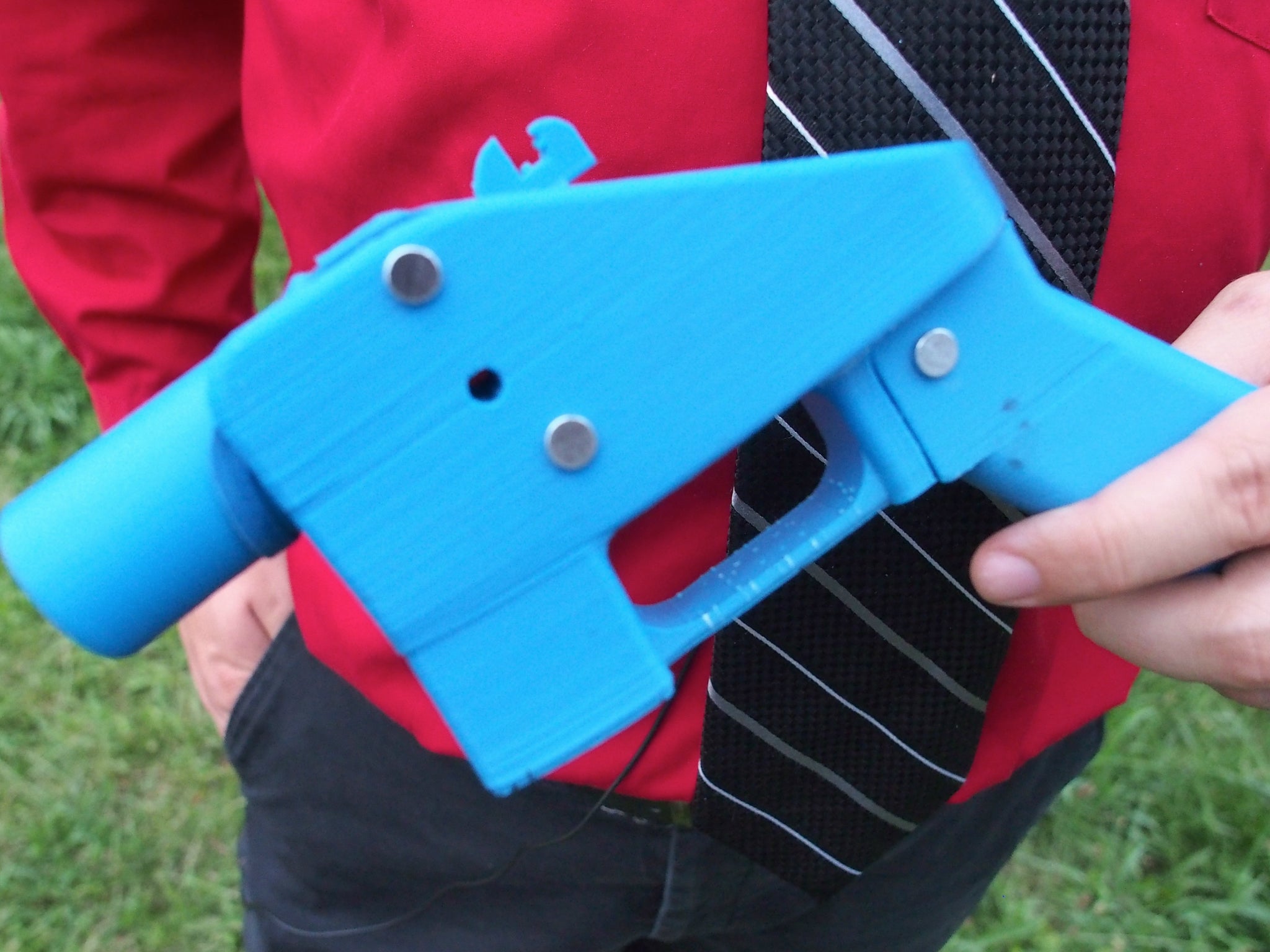Trump administration allows Americans to print 3D guns beginning next month
The State Department agreed to allow code to print weapons to be posted online by a guns rights group

Your support helps us to tell the story
From reproductive rights to climate change to Big Tech, The Independent is on the ground when the story is developing. Whether it's investigating the financials of Elon Musk's pro-Trump PAC or producing our latest documentary, 'The A Word', which shines a light on the American women fighting for reproductive rights, we know how important it is to parse out the facts from the messaging.
At such a critical moment in US history, we need reporters on the ground. Your donation allows us to keep sending journalists to speak to both sides of the story.
The Independent is trusted by Americans across the entire political spectrum. And unlike many other quality news outlets, we choose not to lock Americans out of our reporting and analysis with paywalls. We believe quality journalism should be available to everyone, paid for by those who can afford it.
Your support makes all the difference.Beginning on 1 August, Americans can download a blueprint for and print, 3-D guns thanks, in part, to a court ruling and a settlement by Donald Trump’s State Department.
Last month, the agency agreed to settle a multi-year legal battle with Texan Cody Wilson, who claimed in a lawsuit the government infringed on his right to free speech for posting the programming code online to print a 3D gun. He was ordered to take it down for violating US export laws.
The administration said in the settlement, which was not made public but provided by his attorneys to certain media outlets, that Mr Wilson’s charity group Defense Distributed could post the code online and it agreed to pay $40,000 of his legal fees.
Mr Wilson first posted the plans for the weapon he called “The Liberator” in 2013.
The single-shot handgun was made mostly of the type of plastic used in Lego save for two small pieces of metal, one of which is the firing pin.
The federal government at the time told Mr Wilson posting the code online to print the weapon violated the International Traffic in Arms Regulations (ITAR), regulations relating to the export of defence materials, services, and technical data.
While Mr Wilson complied, he did sue the government two years and a reported one million downloads later.
“The government fought us all the way and then all of the sudden folded their tent,” Alan Gottlieb of the Second Amendment Foundation, a gun rights group who assisted Mr Wilson on the case, told CNN.
Though the lawsuit had been filed during the Obama administration, Mr Gottlieb said much of the case had been handled by career civil servants not political appointees of Mr Trump.
Weapons like the plans for which Mr Wilson made open to the public are nicknamed “ghost guns” since they are untraceable without serial numbers and can be easily disassembled.
"I think everybody in America ought to be terrified,” said Avery Gardiner regarding the prospect that Mr Wilson’s weapons printing plans are available to anyone, including terrorists.
“The danger that could happen can be enormous...To have crazy people have easy access, to have terrorists have easy access to this kind of website and allow them to make plastic AR 15s undetected — so-called ghost guns — just defies the imagination,” US Senator Chuck Schumer said.
The AR-15 is a weapon that has often been used in the numerous mass shootings in the US, including in several school shootings because of the large number of bullets it can shoot quickly.
3D-printed weapons are not at the level of sophistication traditional firearms are, but do not presently require a license, permit, or any kind of criminal or mental health background check.
Though 3D printers themselves are still quite expensive - some costing thousands of dollars - it is a growing market and some companies have begun to offer more affordable versions.
Mr Schumer plans on introducing a bill to regulate so-called ghost guns later this week, his spokesperson said.
Join our commenting forum
Join thought-provoking conversations, follow other Independent readers and see their replies
0Comments